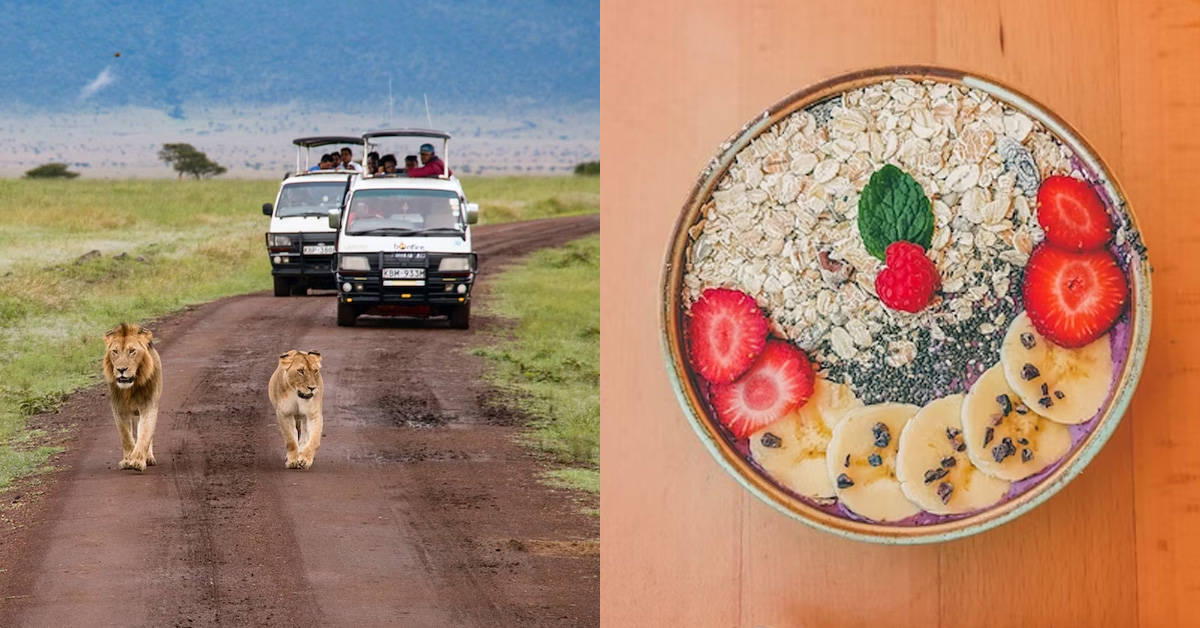Kenyan cuisine is a reflection of the country’s diverse cultural heritage and geographical location. The food is a blend of African, Indian, and European influences, resulting in a unique and flavorful cuisine.
Kenyan cuisine is characterized by the use of fresh and locally sourced ingredients, such as maize, beans, vegetables, and fruits. The cuisine is also known for its use of spices and herbs, which add depth and complexity to the dishes.
Is Kenyan food halal?
Many Kenyan dishes are halal, as the majority of the population is Muslim.
However, some dishes may contain non-halal ingredients such as pork or alcohol, so it is important to check the ingredients before consuming any food.
Additionally, some restaurants may not be halal-certified, so it is important to inquire about the halal status of the food before ordering.
What kind of food do Kenyan eat?
Kenyan cuisine is diverse and varies depending on the region and ethnic group. Some common foods include:
- Ugali: A staple food made from maize flour and water, often served with vegetables, meat, or stew.
- Nyama Choma: Grilled meat, usually goat or beef, served with a side of vegetables and ugali.
- Chapati: A type of flatbread made from wheat flour, oil, and water, often served with stew or curry.
- Sukuma Wiki: A dish made from collard greens, onions, and tomatoes, often served with ugali.
- Pilau: A spiced rice dish often made with meat or vegetables.
- Githeri: A dish made from boiled beans and maize, often served with vegetables.
- Mandazi: A type of fried doughnut, often served as a snack or breakfast food.
- Samosas: A popular snack made from pastry filled with meat, vegetables, or cheese.
- Kenyan tea: A strong black tea often served with milk and sugar.
- Fresh fruits: Kenya is known for its variety of fresh fruits, including mangoes, pineapples, avocados, and passion fruit.
How can you tell if the food is halal in Kenya?
To determine if the food is halal in Kenya, you can look for the following:
- Halal certification: Look for a halal certification label or certificate issued by a recognized halal certification body.
- Ask the restaurant or food vendor: Ask the restaurant or food vendor if their food is halal and if they have a halal certification.
- Check the ingredients: Check the ingredients list to ensure that there are no non-halal ingredients such as pork, alcohol, or any other haram (forbidden) ingredients.
- Observe the preparation process: Observe the preparation process to ensure that the food is not contaminated with non-halal ingredients.
- Look for halal symbols: Look for halal symbols on food packaging or menus, such as the letter or the word “halal” written in Arabic.
Is it hard to find halal food in Kenya?
Kenya has a significant Muslim population, and halal food is widely available in most major cities and towns. There are many halal restaurants, food stalls, and supermarkets that cater to the Muslim community.
However, in rural areas, it may be more challenging to find halal food options. It is always advisable to check with the restaurant or food vendor to ensure that the food is prepared according to halal standards.
Is Kenyan food healthy?
Kenyan cuisine is generally considered healthy as it is based on fresh and natural ingredients such as vegetables, fruits, grains, and lean meats.
Traditional Kenyan dishes like ugali, sukuma wiki, and mukimo are rich in nutrients and low in fat. However, like any cuisine, the healthiness of Kenyan food depends on the cooking methods and ingredients used.
Some dishes may be high in salt, sugar, or unhealthy fats, so choosing wisely and balancing your diet is important.
What is Kenyan food similar to?
Kenyan food is similar to other East African cuisines such as Tanzanian, Ugandan, and Rwandan food.
It also shares some similarities with Indian and Middle Eastern cuisine due to historical and cultural influences.
Steps to find halal food in Kenya
1. Research halal food options in Kenya: Start by researching halal food options in Kenya. You can use search engines like Google or social media platforms like Facebook and Instagram to find halal food restaurants, cafes, and food stalls in your area.
2. Check for halal certification: Once you have a list of halal food options, check if they have halal certification. Halal certification ensures that the food is prepared according to Islamic dietary laws and is free from any haram (forbidden) ingredients.
3. Ask for recommendations: Ask your friends, family, or colleagues who follow halal dietary laws for recommendations. They may know of some hidden gems that are not easily found online.
4. Visit halal food markets: Visit halal food markets in your area. These markets usually sell halal meat, poultry, and other food items that are prepared according to Islamic dietary laws.
5. Read food labels: When shopping for food items, read the labels carefully to ensure that they are halal. Look for halal certification logos or symbols on the packaging.
6. Use halal food apps: There are several halal food apps available that can help you find halal food options in Kenya. These apps provide information on halal restaurants, cafes, and food stalls in your area.
7. Ask the restaurant staff: If you are unsure about the halal status of a particular food item, ask the restaurant staff. They should be able to provide you with information on the ingredients used and how the food is prepared.

